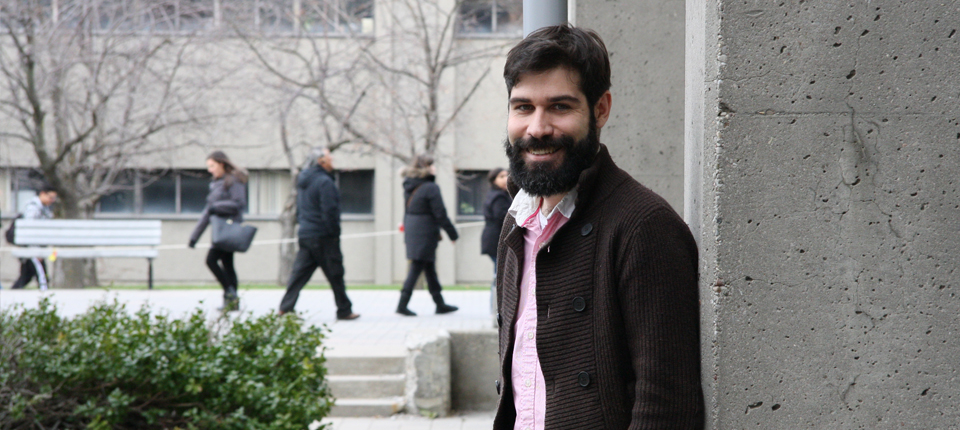How has psychological expertise changed the way we live, love, and learn?
Michael Pettit studies psychology through the lens of history. His exploration of the history and public understanding of psychology involves looking at relationships between psychologists and their publics, and between psychology and the people that read it. Pettit’s most recent book explored the cultural history of lying and how psychologists became experts for understanding why we tend to deceive and be deceived. He is also part of a research team working on the creation of a digital history lab.
Inspiration
The philosophy of expertise has the power to alter our psychology and our society.
I am interested in the role of experts in our democratic society. The nature of evidence and experts is a very important political issue in Canada: our media is filled with findings; opinion polls shape our elections and the way we govern. I want to explore the nature of the impact experts can have. Such a powerful social force deserves academic scrutiny.
Impact
In my book, “The Science of Deception: Psychology and Commerce in America”, I looked at the history of deception in psychology but also in popular culture. How did the law deal with deception? How did educators deal with deceitful children? It is a cultural history of lying and how psychologists became experts on deception, and then how psychologists started to adopt forms of deception to study those tricky people. Part of this book also explored this deep skepticism of psychologists as experts. For example, psychologists as experts in a legal context is very controversial. Part of what psychologists claim to do is understand the mind and motivation, which usurps the jury process. Psychologists have not always been entirely welcomed as experts.
Highlight
My most popular work was popular for rather odd reasons. I did research on the animal models that psychologists have used over time to study thinking and behavior. I wrote an article a number of years ago about the very brief period in history when comparative psychologists thought that raccoons would make a viable model organism for studying cognition. Before chimpanzees were the great almost-human, there were raccoons. My article was hugely popular, and I still get people sharing their stories of their lives with their raccoons. I get emails from the producers of nature documentaries that want to know more about them. I’ve accidentally become a worldwide expert on raccoon intelligence.
Explore therapeutic archives is the most interesting work I’ve done. These are private collections of letters held in museums, libraries, and universities. They are first-person accounts of people’s inner lives, and them turning to experts to get some sort of self-understanding. The letters detail people’s private feelings of anxiety, sexuality, their marriages, and other very personal things. They are an incredible source for social history, and can help pinpoint how and when a brief fad in psychology (whether a term like “mesmerism” or a treatment like testosterone injections) developed.
What’s Next?
The lions’ share of my attention is now on a digital history lab that we are running with Chris Green thanks to grant funding from SSHRC. The idea is to combine online databases of psychological literature with mapping technology to give a historical geography of psychological concepts. We are using bibliometrics – analyzing citations and co-authorship networks – and linking it to geography. The outcome will be a significant contribution to the history of psychology. We will make it open access, so that everyone can use it, and I think it will also help with the teaching of psychology.


